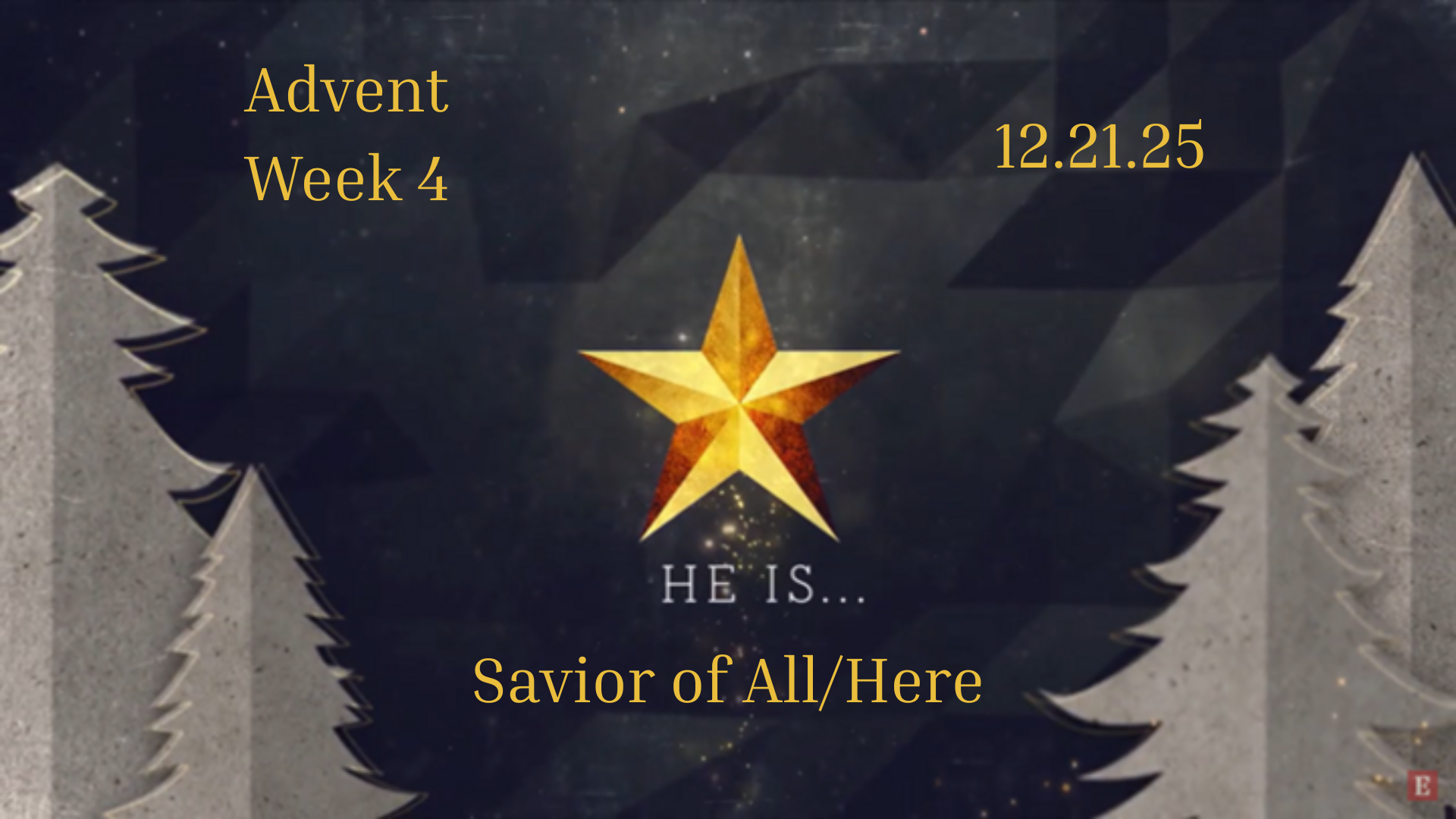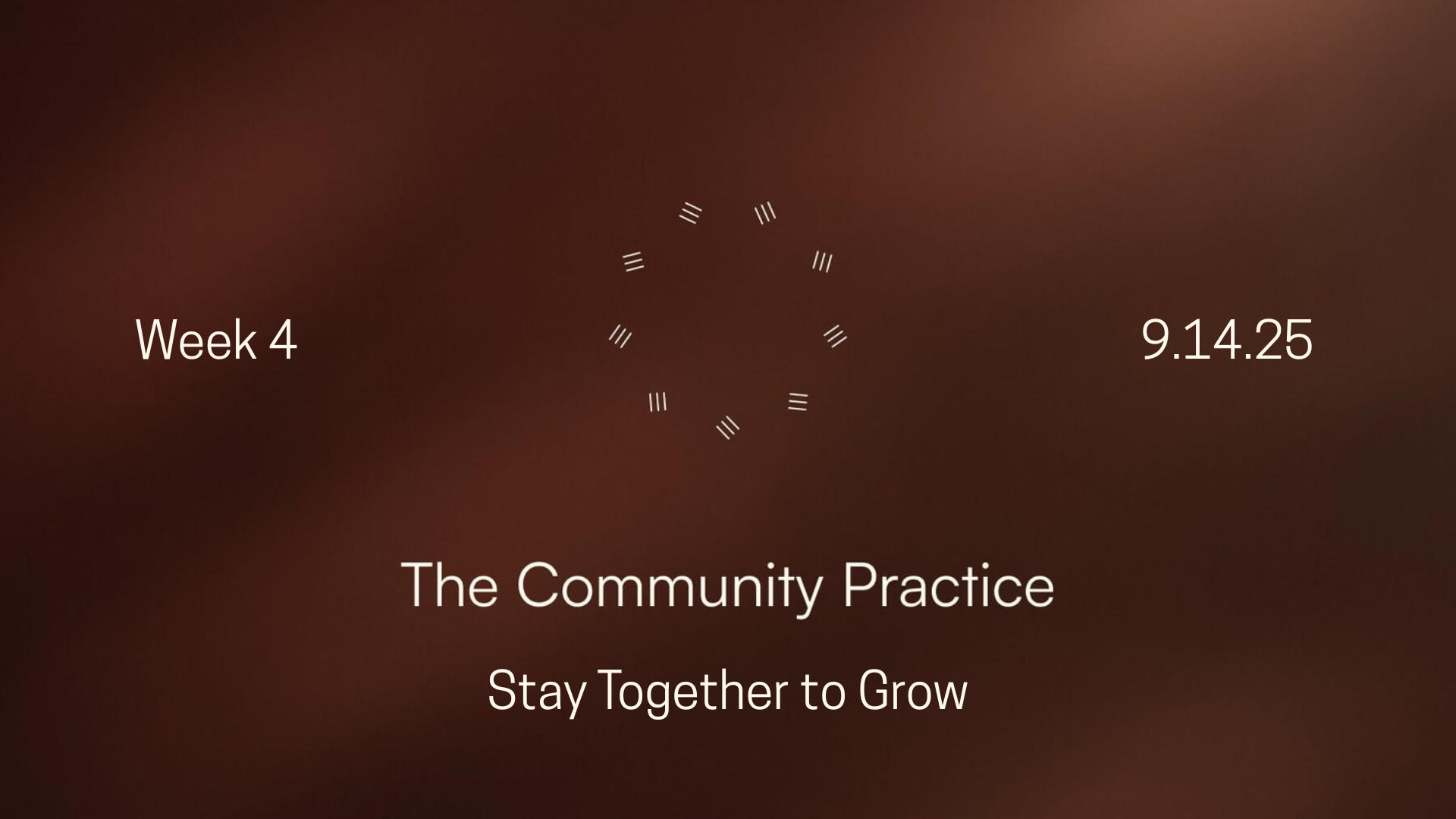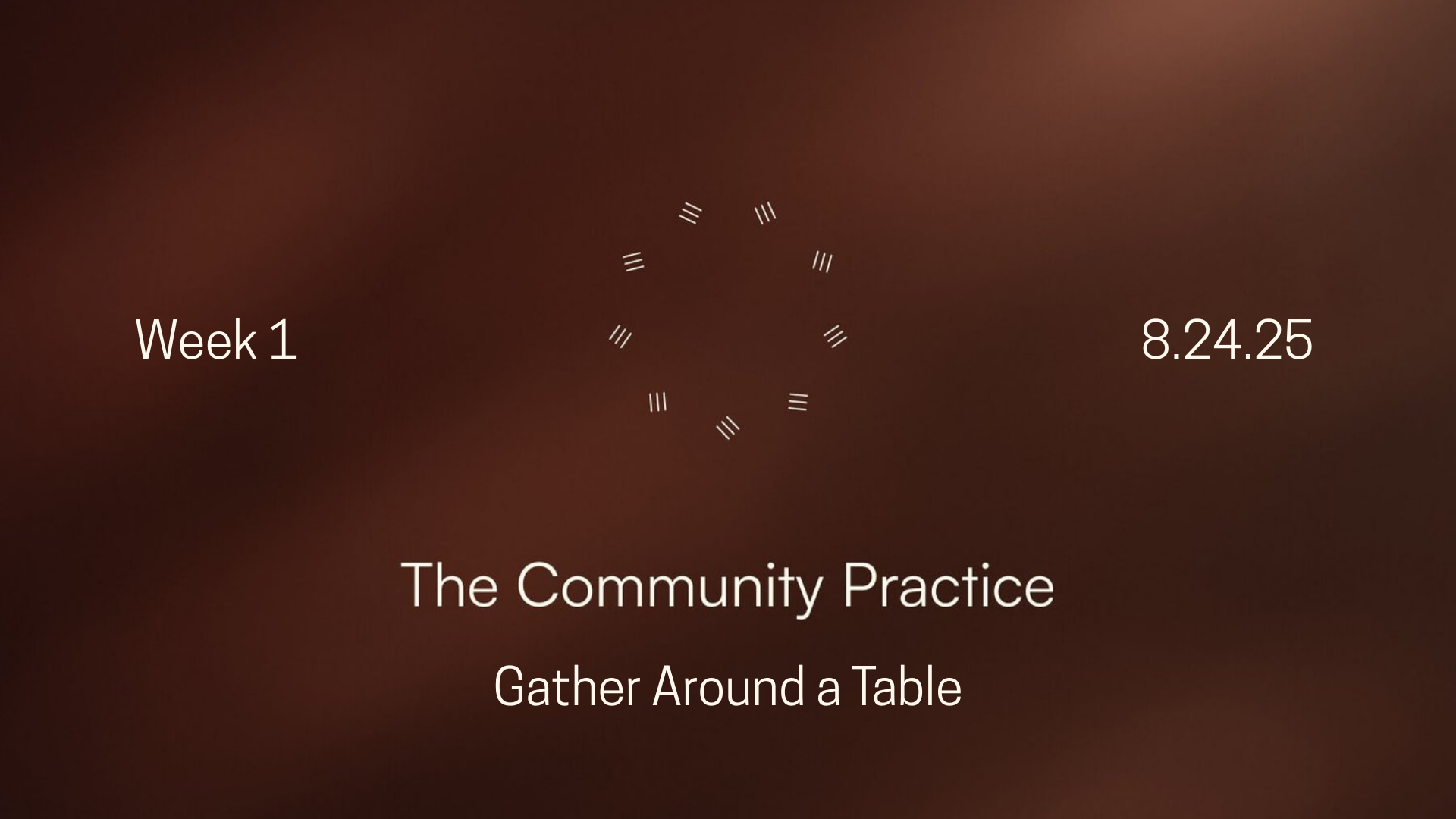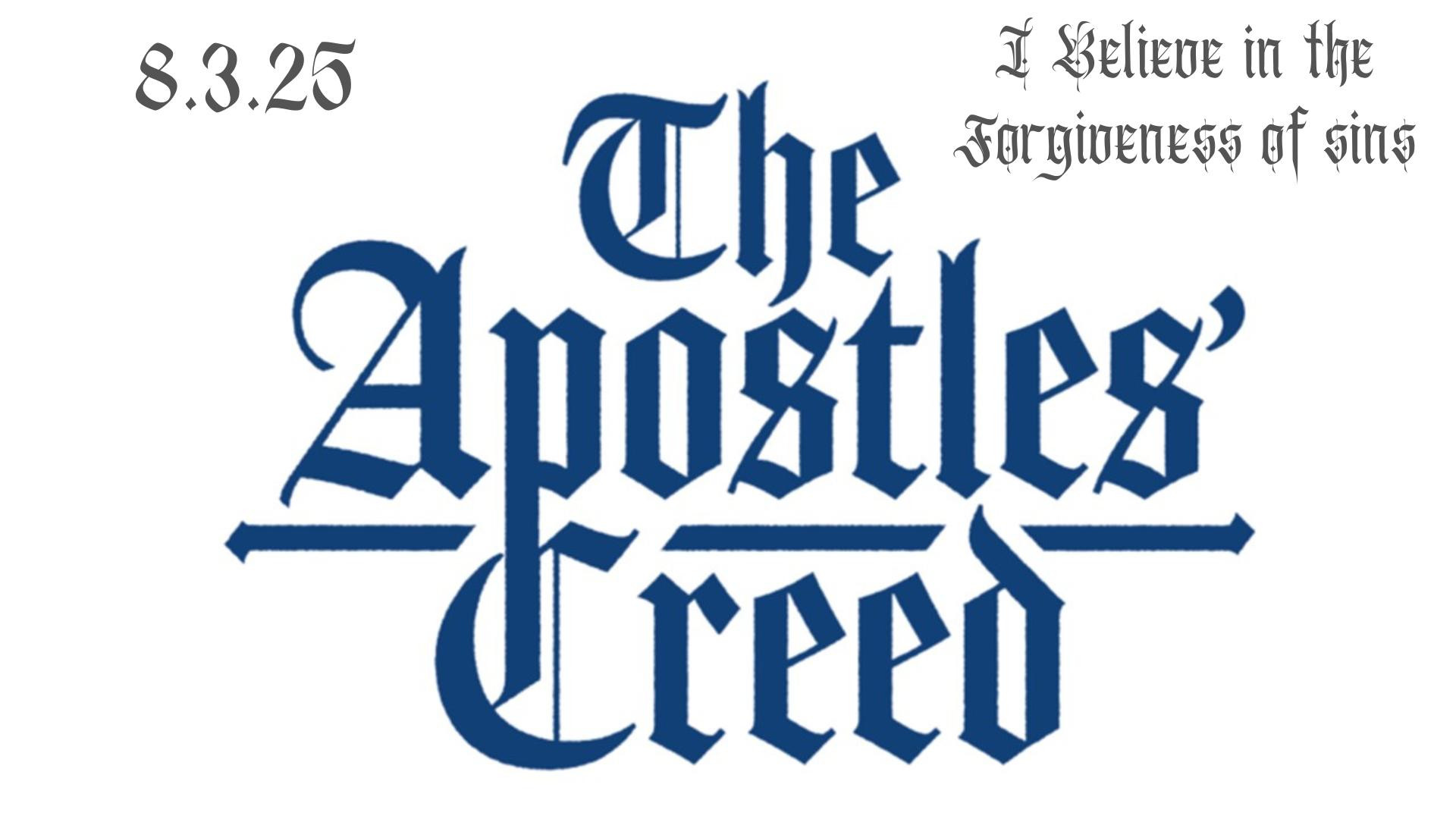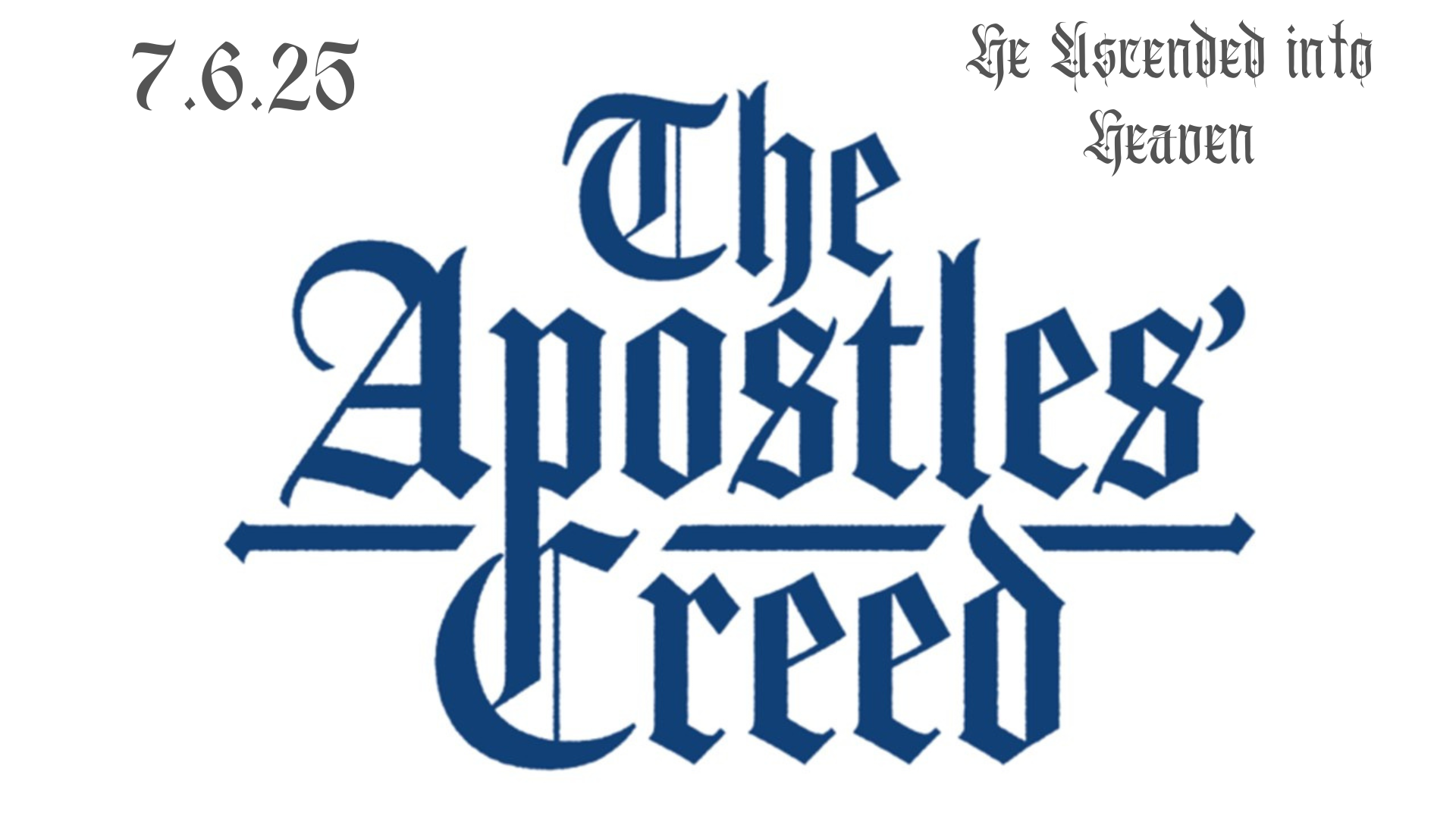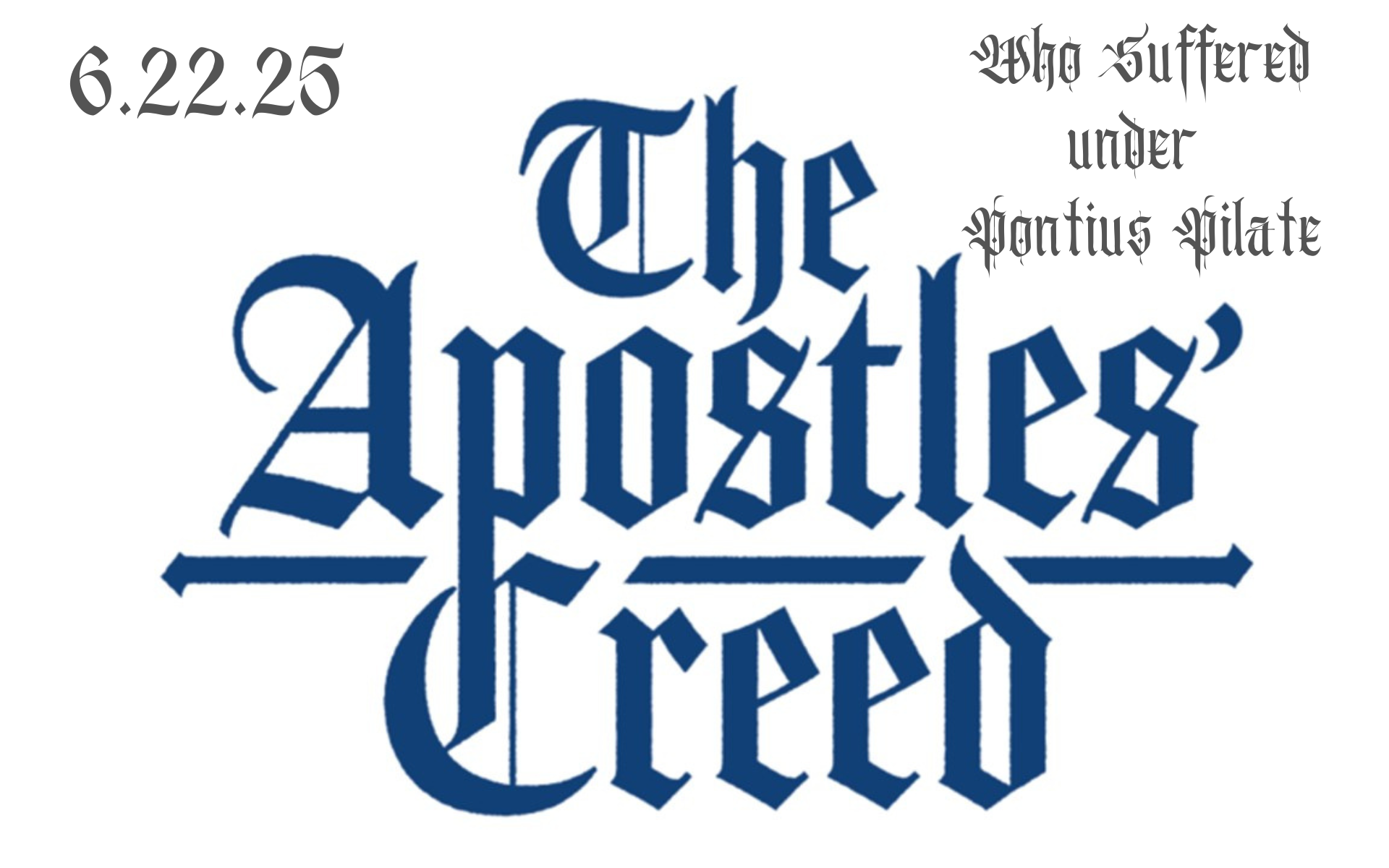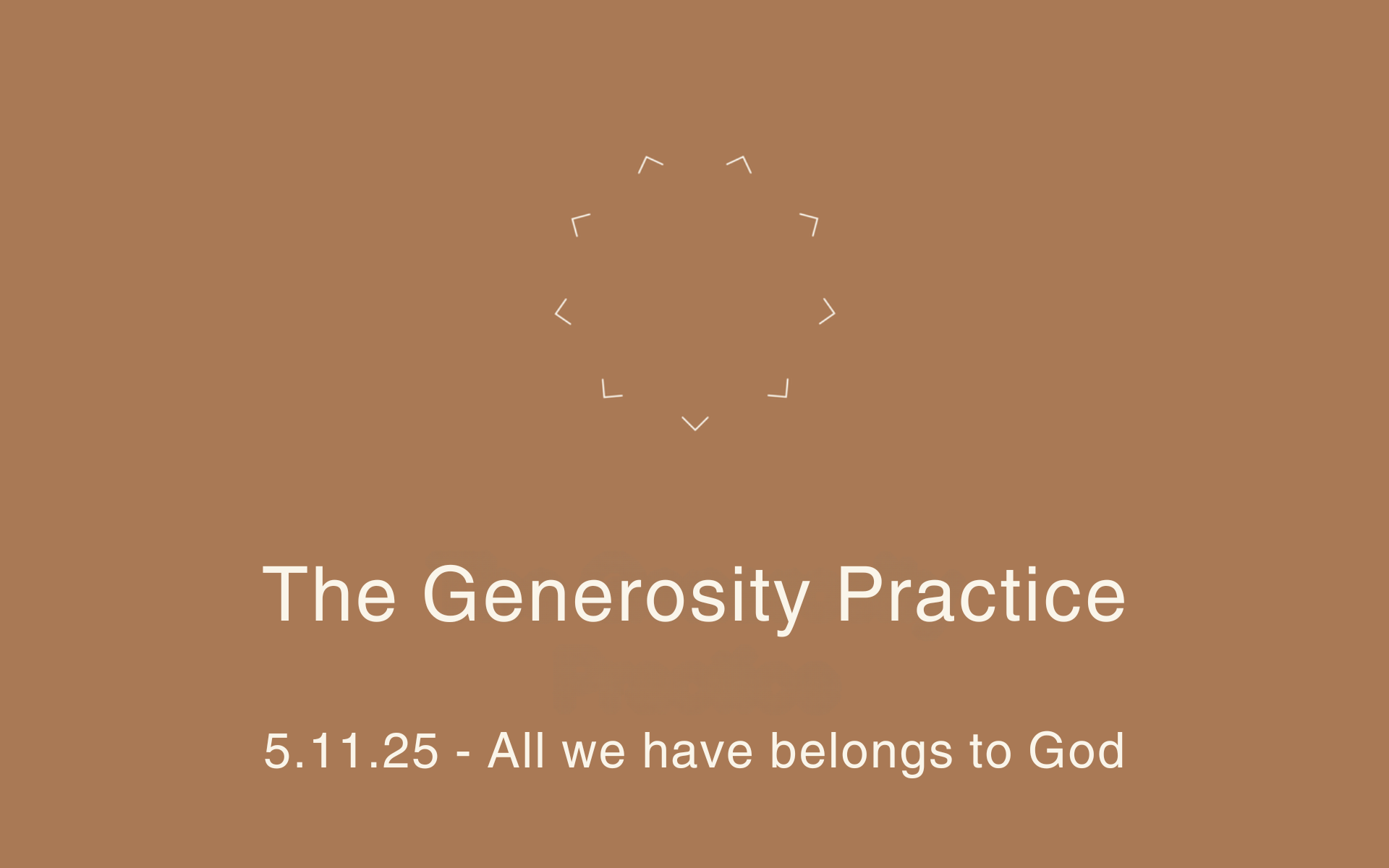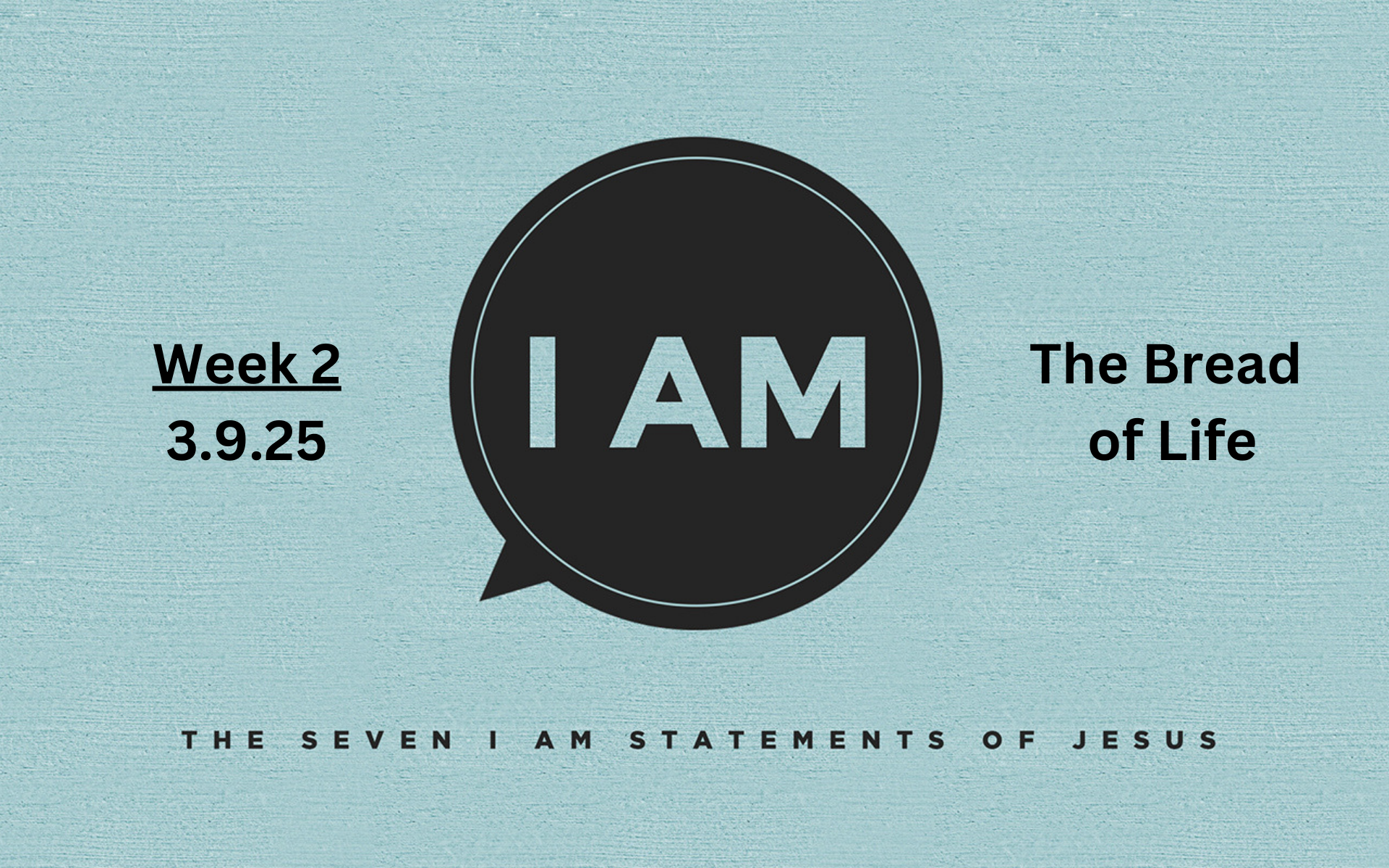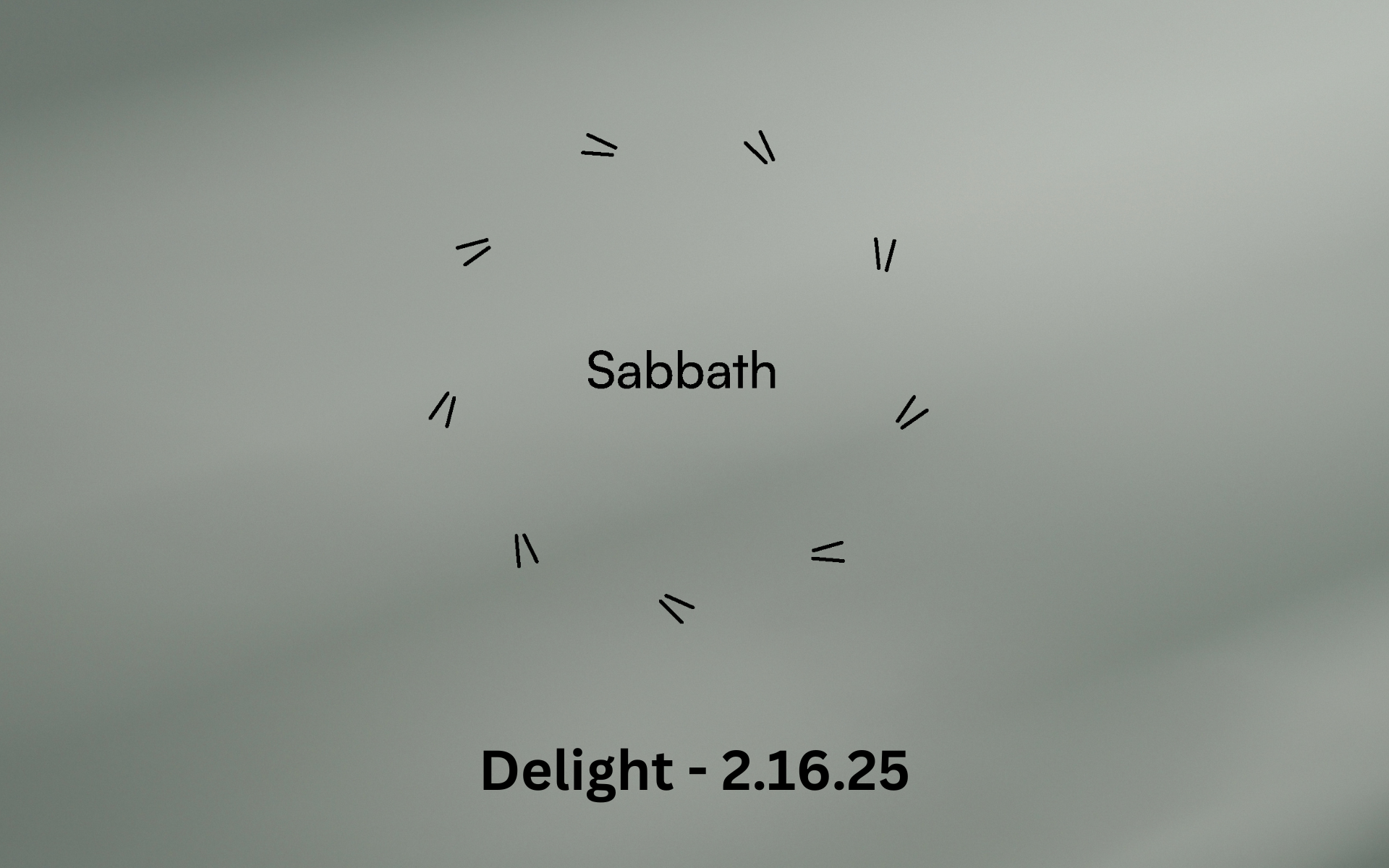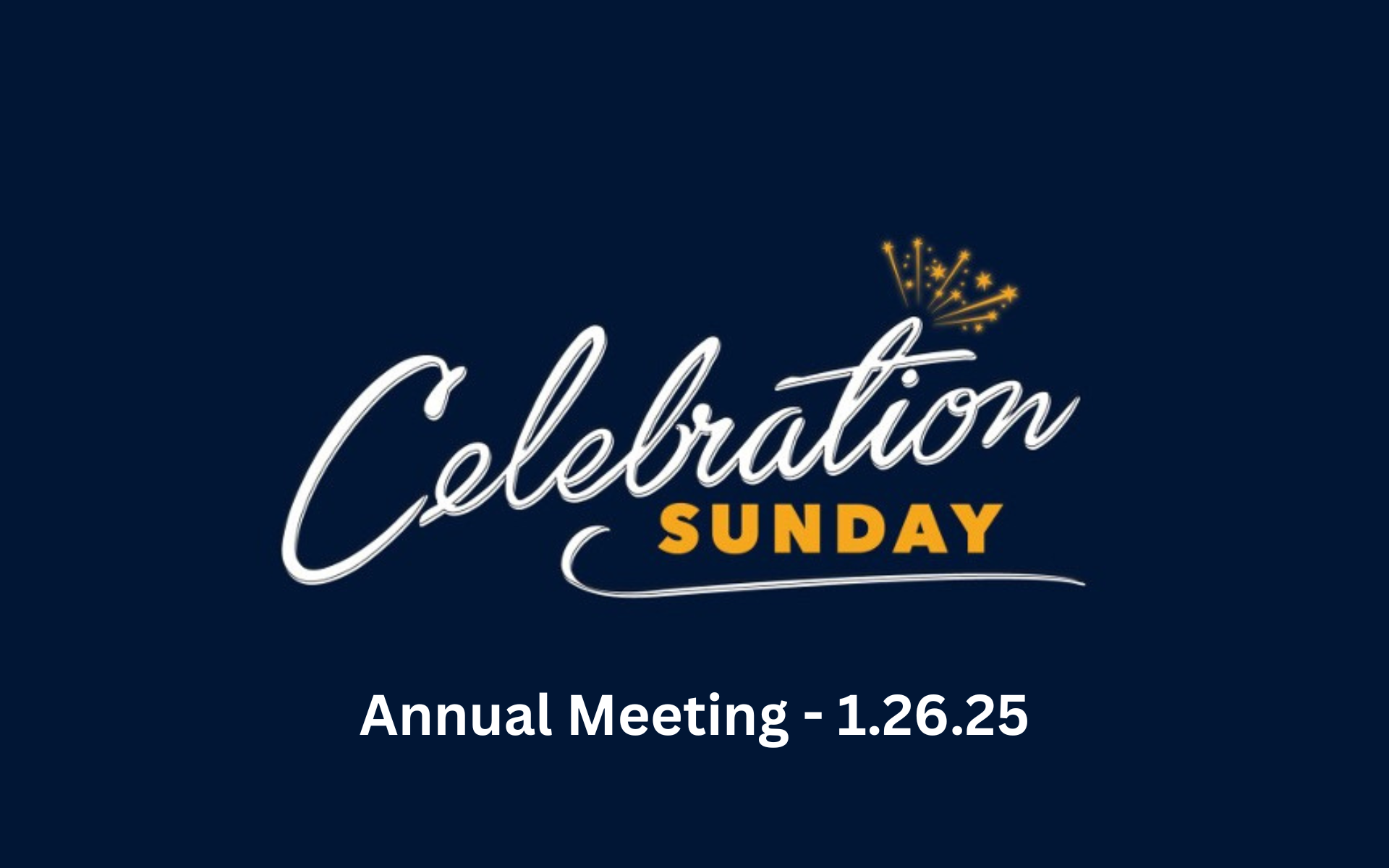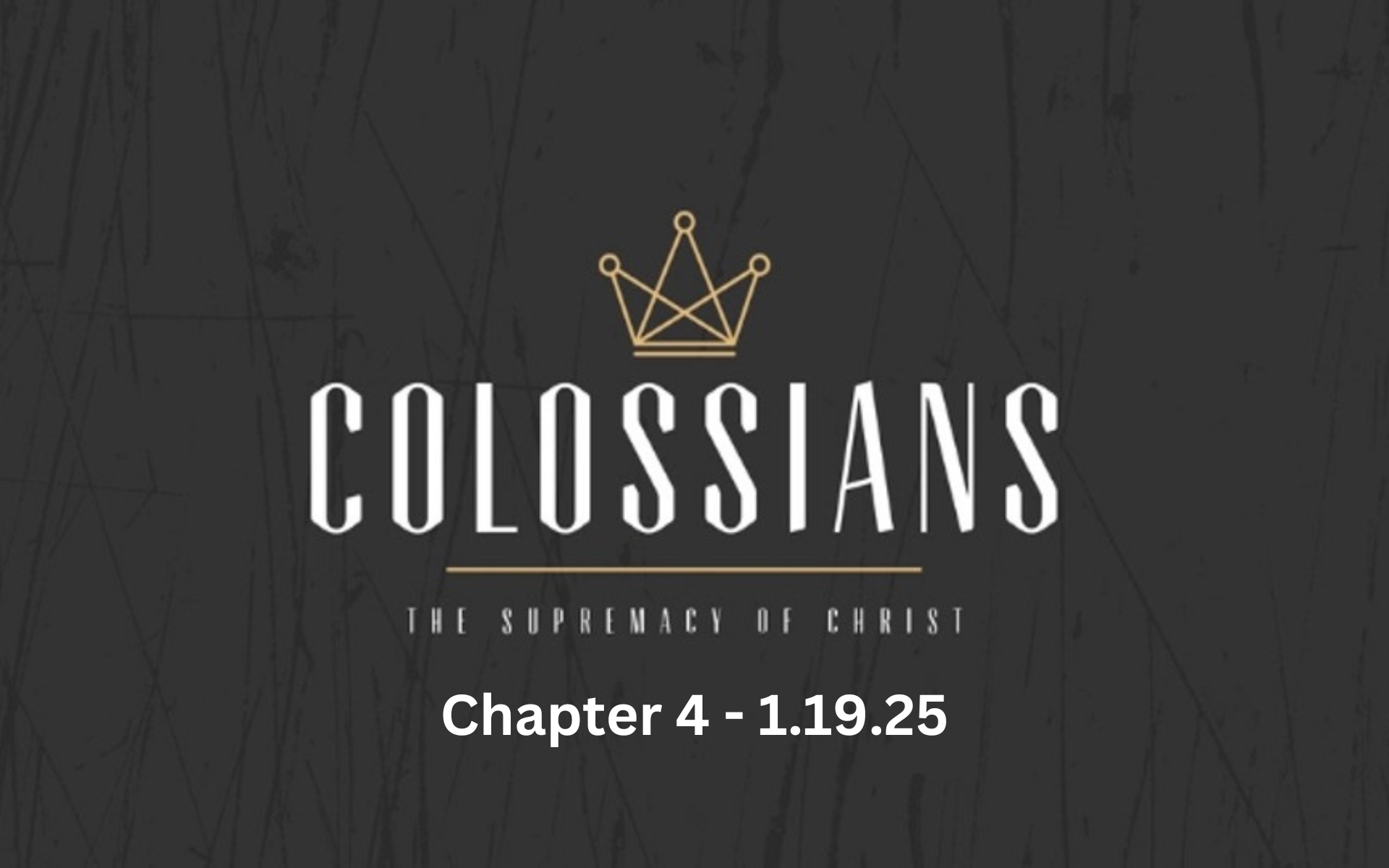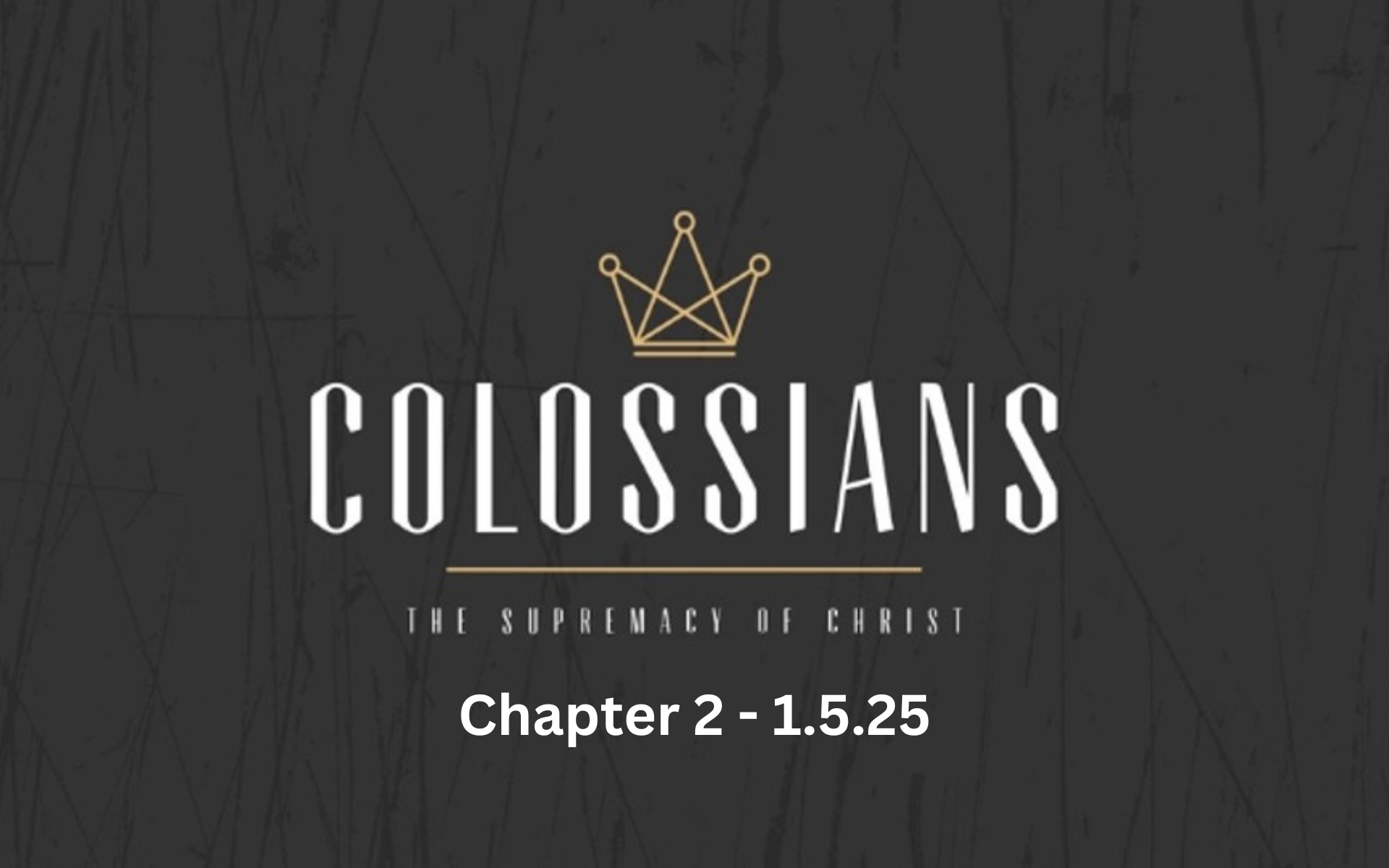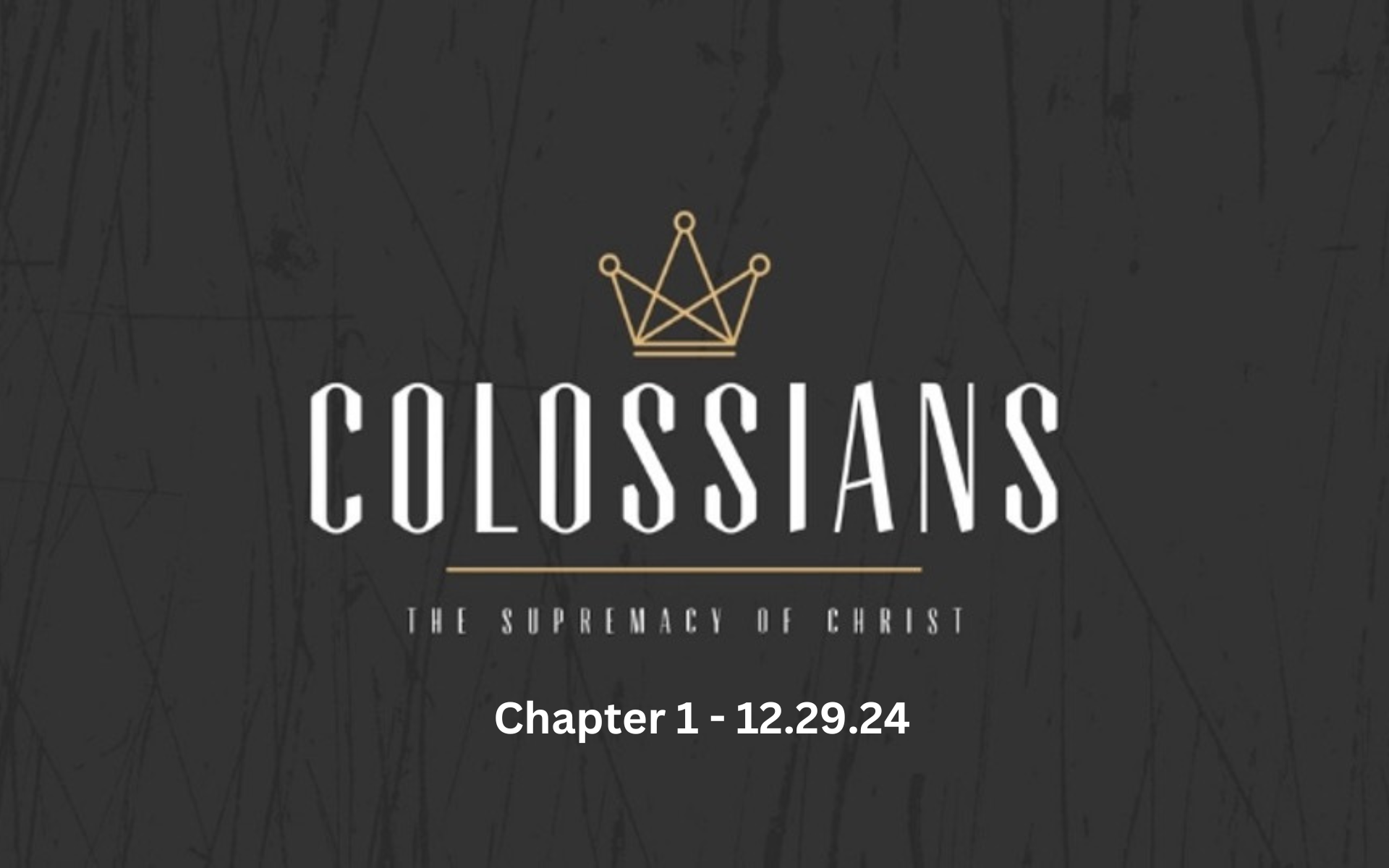-
Advent 2025 Week 4 - He Is: HERE
Reflection & Application Questions
What stood out to you most from the sermon or the Luke 2 passage, and why do you think that caught your attention right now?
(Invite people to name where the Spirit may already be at work.)Mary, Joseph, and Simeon all reorganized their lives around obedience, waiting, and longing for God’s promises. What does “waiting” look like in your life right now—and how do you usually respond to it?
How might practicing the way of Jesus reshape how you wait?Simeon recognized Jesus as salvation before anything was “finished” or resolved. Where do you struggle to trust God before you see outcomes or answers?
Simeon says Jesus will reveal hearts—causing both falling and rising. As you reflect honestly, where have you experienced an “apocalypse of the heart” with Jesus recently?
What has Jesus been uncovering, challenging, or inviting you to repent of?The sermon emphasized hunger, repentance, and glorifying God rather than ourselves. What is one concrete practice you could take on this week—individually or as a group—to live more surrendered and outward-focused for the sake of others?
-
He Is - Week 3: John the Baptist
Sermon Theme: The Background Voice: John the Baptist and Christ Before All Things
Reflection & Application Questions
1. John the Baptist’s life shows us that even someone “in the background” can play a crucial role in God’s story. Where might you be in the background right now, and how could God be using you in ways that aren’t immediately visible?
2. John repeatedly pointed others to Jesus instead of taking credit for himself. What areas of your life are most prone to self-promotion, and how might you intentionally redirect attention to Christ?
3. John’s entire purpose was to prepare people for Jesus’ arrival. How does understanding your life as a preparation for revealing Christ change your priorities, relationships, or daily actions?
4. John’s joy was complete when Jesus was recognized and honored. Where do you need to cultivate a posture of celebration for what God is doing in the lives of others, rather than focusing on your own achievements or recognition?
5. John compared himself to a groomsman whose joy came from seeing the bride and groom shine, not from stealing the spotlight. In your life, where might God be inviting you to step aside and rejoice in what He is doing through others, rather than seeking the attention or credit for yourself?
OLDER KIDS QUESTION:
If you were a groomsman at a wedding, how would it feel if everyone kept talking about you instead of the bride and groom? How does John the Baptist’s example help us understand what it means to make Jesus the most important part of our story?YOUNGER KIDS QUESTION:
This week you talked about how Jesus sets the example of asking for forgiveness and for help resisting temptation when he prays. You also learned how in Psalm 51 David confesses his greatest sins and asks God to give him a clean heart. It all reminds us that 'saying sorry to God' is a part of prayer. What does that mean? Maybe tell about a difficult apology you have had to make- either to God or to someone else?Practices for the Week
1. Daily Reflection: Each morning, ask God to show you one way to point others to Jesus today. Journal even small moments where you notice opportunities to glorify Him rather than yourself.
2. Celebration Check: Identify one person each day—at work, home, or in your community—whose story or contribution God is using for His glory. Take a moment to celebrate them, either privately in prayer or publicly with encouragement.
3. Groomsman Moment: Throughout the week, notice moments where you can “step aside” in conversations, meetings, or social settings and redirect attention to Christ or others. Reflect nightly on what you learned about joy and humility by doing this.
4. Scripture Focus: Read John 1:19–34 and meditate on John the Baptist’s words: “He must increase, but I must decrease.” Ask God to show you what it looks like for Christ to be preeminent in your life this week.
-
Advent 2025 Week 2: He Is… Mary: When the Spirit Moves
Scripture Reference: Luke 1:26-45Opening Question
As you reflect on this week’s message, what did you discover or were you reminded of about who God is?
Discussion Questions
1. Faith in the Impossible
Mary stepped into a situation that was confusing, risky, and seemingly impossible—and yet she trusted God.
What is one area in your life that currently feels impossible?
How do you typically respond when God asks you to trust Him in situations you don’t understand?
What would trusting God in that situation look like this week?
2. Surrender and Letting Go of Control
Mary didn’t just believe—she surrendered: “I am the Lord’s servant.”
Where in your life are you holding tightly to control instead of surrendering to God?
How might your perspective or emotions change if you truly let go and said, “Here I am, Lord, do with me what You will”?
What fears or doubts surface when you think about surrendering completely to God?
3. Worship as Response to God’s Beauty
Mary worshiped because she saw God’s majesty, not just His practicality.
Do you more often see God as practical (problem-solver) or beautiful (worthy of awe and adoration)? Why?
How might seeing God as beautiful, not just practical, change the way you worship Him daily?
Can you recall a time when recognizing God’s beauty in your life led you to genuine worship or awe?
4. Real People, Real Emotions
The people in the Bible weren’t perfect—they had doubts, fears, and messy lives, just like us.
Which part of Mary’s story felt most relatable to you? Why?
How does seeing Mary as a “real person” rather than a perfect figure change your view of following God in your own life?
How can sharing your struggles with trusted people help you see God’s work more clearly, like Mary turning to Elizabeth?
5. God’s Grace Over Merit
Mary was “highly favored” because of God’s grace, not because of what she had earned or deserved.
How do you tend to think about God’s grace in your own life—something you earn, something you receive, or something you often overlook?
When has God shown you favor or grace in a way you didn’t deserve? How did it change you?
How could embracing the idea of “finding favor with God” shift the way you approach your faith and decisions?
Middle School/High School Question
Mary faced a really scary and confusing situation, but she chose to trust God and let Him work. Can you think of a time you had to trust God even when it didn’t make sense? What helped you? And like Mary went to Elizabeth - who do you go to when when things feel impossible?
Kids’ Question
This week you talked about asking for help. What is one thing you need help with this week, and who can you ask to help you?
-
Advent Week #1: He Is… Answer to Prayer
1) Story-Minded Eyes: Seeing the Small Stories Point to the Big Promise
Framing sentence to read: “The Bible isn’t mainly a rule book or a hero book — it’s a single, unfolding story whose center is a baby. Let’s practice noticing how our ordinary stories whisper His name.”
Discussion prompts
Which small, ordinary moment from your past do you now see as part of God’s larger story for you?
When Monday shows up and Jesus isn’t named in the moment, how do you try to notice the ‘whispers’ of God? Give one practical habit or memory that helps you.
How does remembering that our lives sit inside God’s long story change the way you carry daily frustrations or disappointments?
Where today might you intentionally look for a “whisper” — a small sign of God at work — instead of demanding a big dramatic sign?
2) From Silence to Assurance: Wrestling with Doubt While Trusting the Promise-Keeper
Framing sentence to read: “Zechariah knew the promises in his head but still struggled in his gut. Advent holds both our longing and God’s faithful timing—let’s be honest there.”
Discussion prompts
Where are you holding one foot on the dock and one foot on the boat — believing with your mind but doubting in your heart? Name it if you can.
How have you experienced God ‘disciplining’ you for your good rather than punishing you? Can you share what changed inside you as a result?
When silence or delay feels like absence, what truth from Scripture or memory helps you move toward assurance?
What would a small next-step of faith look like this week for someone who’s in that “one foot on/one foot off” place?
3) Grace That Takes Away & the Response It Requires
Framing sentence to read: “Elizabeth said God had ‘taken away her reproach.’ Advent is an invitation to bring what we can’t fix and ask Jesus to take it away — and then to respond with worshipful obedience.”
Discussion prompts
What is one burden, shame, or regret you’d be willing to name (briefly) and ask Jesus to ‘take away’ this Advent? (No pressure — share only what you’re comfortable with.)
How does believing your salvation is secure (that God takes sin away forever) change the way you live day-to-day?
Zechariah responded in worship and obedience after his time of silence. What does faithful response look like for you right now — one concrete act you could take this week?
In what ways does knowing God both disciplines and saves you free you to serve or love others differently?
Youth (12–18)
Youth Topic: What Are You Hoping God Will Do?
(You said you liked this — keep it simple, invite one concrete hope, and ask: “What’s one small way you’ll trust God about that this week?”)Children
Children Topic: The Lord’s Will
Invitation for the Week
- As a family, gather together each morning to pray for God’s will to be done in your lives that day.
- Talk about how it made a difference that day to seek God’s will instead of your own.
Talk About
- What’s an opinion you feel really strongly about?
Suggested Advent Rhythm for Groups & Individuals
AN ADVENT PRACTICE for the GROUP: The “Pause + Promise” Practice
(5 minutes a day • all Advent long)**1. PAUSE (1 minute)
Each day, stop for one intentional moment of quiet.
Take one slow breath in and one slow breath out.
Pray simply: “Lord, I am here. Help me notice You.”2. READ A PROMISE (2 minutes)
Choose one verse from the Gospels that points to who Jesus is.
Groups can share a small list or choose their own.
Examples for Week 1: Luke 1:13, Luke 1:37, John 1:14, Matthew 1:23.Read the verse slowly.
Ask quietly: “What does this reveal about who Jesus is?”3. NAME ONE RESPONSE (2 minutes)
End with a short, simple act of trust or obedience for that day.
Something like:“Today I will choose gratitude before complaint.”
“Today I will speak gently.”
“Today I will carry one person in prayer.”
“Today I will look for one ‘whisper’ of God’s presence.”

